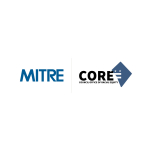The research and interactive summary provide insights to inform analysis, solutions, and strategic planning to close DC’s racial wealth gap.
MCLEAN, Va.–(BUSINESS WIRE)–MITRE and the District of Columbia (DC) Council Office of Racial Equity (CORE) publicly issued new research today, A Systems Analysis of the Black-White Racial Wealth Gap in the District of Columbia, to understand the racial wealth gap in the district, how it operates and is reinforced, and how to achieve change.
Their collaboration applied a data-driven, systems approach to help inform DC Councilmembers during their program and budget planning process as they work to eliminate racial inequities in the district.
“In DC, the wealth gap between Black and white residents is deep and persistent,” said Brian McClure, director, DC Council Office of Racial Equity. “We enlisted MITRE to help us develop a comprehensive, actionable understanding of the racial wealth gap, and then we provided this information to the DC Council to help members and staff as they think through ways to strategically address these racial inequities.”
As noted in the research, closing the racial wealth gap will require addressing the identified feedback loops through coordinated, transformative efforts by all sectors— academic, public, private, and nonprofit— in ongoing partnership with residents experiencing wealth inequity. The research provides insights to inform analysis, solutions, and strategic planning to close the racial wealth gap.
MITRE and the DC Council Office of Racial Equity created several causal loop diagrams to capture and summarize the many factors that influence wealth-building and explore how they are related to each other. These diagrams reflect the experiences of district residents, along with a large volume of secondary research from social scientists and research economists. Also, several personal stories of district residents are highlighted in the research.
“We view these diagrams as a starting point for describing how different communities experience wealth-building in the district,” said Jenine Patterson, Social Justice Platform project leader, MITRE. “We hope to expand our partnerships with residents, community groups, and government leaders to not only improve the diagrams, but also to build a solid foundation for shared understanding on how the wealth gap is sustained and for creating effective solutions with residents experiencing inequity.”
In analyzing wealth as a system of systems, the research shows how racial inequities are shaped by a combination of current and historical policies and practices, rather than one policy or practice alone. A one-time change in any individual factor such as education level or income is unlikely to drive the overall wealth-building system to a sustained, racially equitable state. The research explains how reinforcing feedback loops encourage the system to continue existing patterns that lead to racially inequitable results.
The research identifies many different feedback loops in DC’s wealth-building system that are working in different directions with different strengths for different populations. By identifying which feedback loops drive system results, and how they apply to different people in the community, communities can define a portfolio of coordinated policy interventions that can positively impact racial equity. The research identified three main feedback loops for consideration when planning new solutions:
- Investing in employment,
- Building financial resilience, and
- Increasing rates of return.
The research also identifies several recommendations. In addition to partnering with more district residents to improve upon the research, a critical next step is to set specific, measurable goals for racial equity in wealth and to develop a strategy for continuous assessment. Introducing new interventions to the wealth-building system will change the system’s dynamics. Councilmembers will need to continuously monitor the wealth-building system so that they can proactively identify racial inequities and adjust interventions in response to the changing system.
The research is available via an online PDF and an interactive summary on MITRE’s Social Justice Platform. CORE also has created a video to show residents, researchers, and DC Councilmembers how to best use information from the study.
About CORE: The Council Office of Racial Equity’s (CORE) mission is to eliminate racial disparities and achieve racial equity in the District of Columbia. When successful, race will no longer predict opportunities, outcomes, or the distribution of resources for residents of the district, particularly for Black, Indigenous, and other residents of color. Through these efforts, all communities will live, work, and thrive in the District of Columbia. www.dcracialequity.org/
About MITRE: MITRE’s mission-driven teams are dedicated to solving problems for a safer world. Through public-private partnerships and federally funded research and development centers, MITRE works across government and in partnership with industry to tackle challenges to the safety, stability, and well-being of our nation. www.mitre.org
About MITRE’s Social Justice Platform: MITRE’s Social Justice Platform is applying data analysis, modeling, equity-centered design, and change management capabilities to advance equity in programs and communities. The platform helps our partners gain insight into complex social issues and systemic inequities, create solutions that disrupt those systems, and coordinate their investments for lasting impact. https://sjp.mitre.org/
©2022 MITRE #22-0434 02-04-2022
Contacts
CORE: Brian McClure, bmcclure@dccouncil.us
MITRE: Lisa Fasold, media@mitre.org





